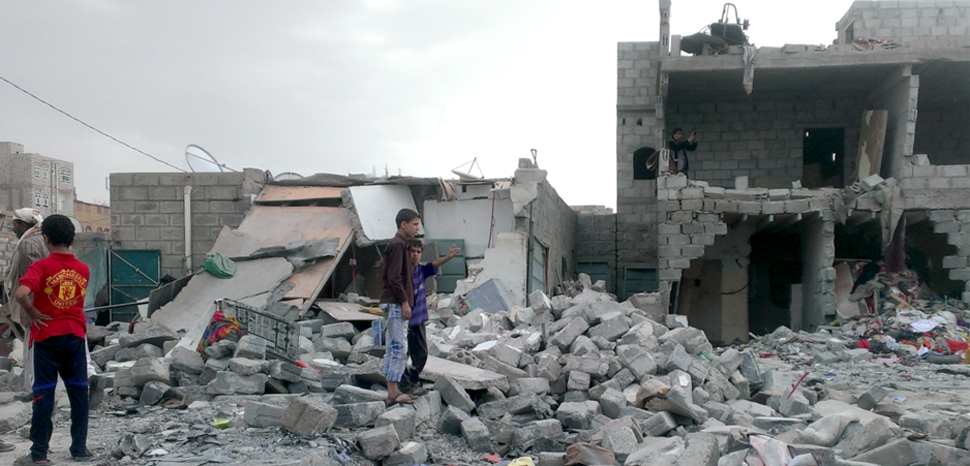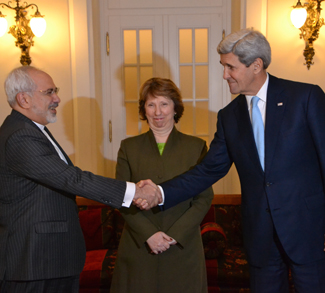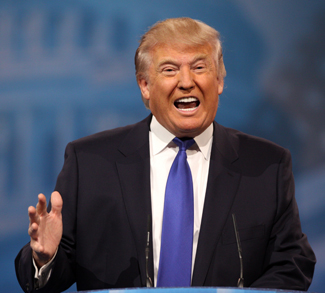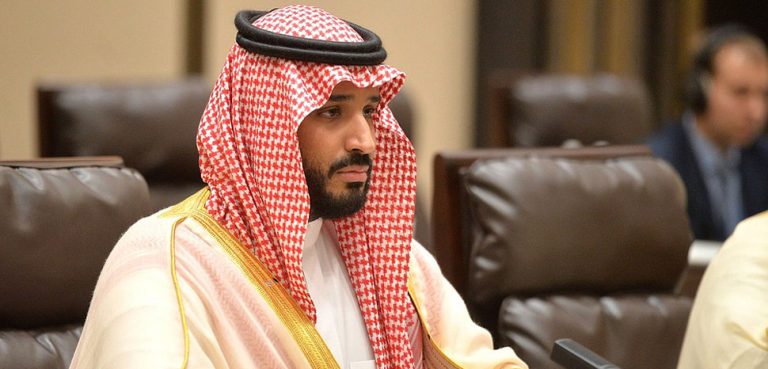The acceptance of responsibility, the preservation of integral principles and moral integrity, are attributes we all search out in other people and ourselves. It’s a trait that is undeniably beneficial to not only our conscious but in practical matters involving trust and friendship. On the world stage, this is no different. So it’s time we said it: Yes, a reckless American foreign policy is partially responsible for the crisis unfolding in Yemen. And yes, because of that, we’ve got to help solve it.
If you’re not completely familiar with the civil war currently ravaging the small, poor nation on the southern tip of the Arabian Peninsula, don’t worry, you’re not alone. The staggeringly low amount of attention the conflict has gotten in Western media reflects the sad status of normality that humanitarian crises have taken up, at least when they occur in the Middle East.
In 2012, Yemen overthrew its longtime leader, President Ali Abdullah Saleh, who was replaced by Vice-President Abdrabbuh Mansur Hadi. The transition however failed to unite the fractured country, and Houthi rebel groups eventually forced him to resign in 2015, leading the rebels to establish their own government. Hadi escaped capture and fled to Saudi Arabia, where he enjoys the backing of officials in Riyadh. The war between the two groups is complicated, and it becomes even more confusing with the realization that countless separatist organizations, such as The Southern Transitional Council, are also fighting for control of the nation.
The result so far? Eight million people are at risk for starvation, almost a third of the entire country.
Yemen was already facing problems before the drums of war could be heard in the distance. Severe ecological issues have plagued the country for decades, manifesting in an extreme lack of water and constant droughts, an increase in cyclones, and most recently a worryingly large cholera outbreak that has already claimed the lives of thousands. Currently, it’s the worst recorded outbreak in human history, with an estimated 800,000 suspected cases.
Owing to its proximity to a large share of the world’s oil supplies, the conflict has attracted a large amount of attention from regional powers like Iran and Saudi Arabia, and as usual, it hasn’t gone over too well for the local population. In response to an intervention from Iran in support of the Houthi rebels, Saudi Arabia along with the UAE launched a surprise attack on the port city of Al Hudaydah as recently as June 13, which humanitarian groups are saying will make the current death toll skyrocket.
“This attack risks more people dying, but it also risks cutting the lifeline of millions of Yemenis,” said Jolien Veldwijk, the director in Yemen for the aid agency Care International. “Food imports already reached the lowest levels since the conflict started, and the price of basic commodities has risen by a third. We are gravely concerned that parts of the population could experience famine.”
But not only have Iran, Saudi Arabia, and the UAE been involved now for nearly three years, The United States has continuously supported efforts by the Arab coalition to continue the conflict. Indirectly through this support, the United States has aided in the needless killing of thousands, via the reckless offensives of regional powers that hold no regard for the value of human life. The worst part? This really wasn’t even about combating terrorism in Yemen in the first place; it was about appeasing the Saudis.
During negotiations between Iran and the Obama Administration back in 2015 over the nuclear deal, Saudi Arabia had been largely left out, because many in Washington thought a deal involving either Israel or the Saudis would be impossible because of regional strife and religious animosity. Despite the fact that this was probably true at the time, America’s way of making amends with their Arab partners was, you guessed it, giving them the tools they needed to intervene in Yemen.
As Robert Blecher, International Crisis Group’s Middle East and North Africa deputy programme director, told Al Jazeera in 2017: “The Obama administration had reservations about the Yemen war from the beginning, but supported the fight largely to show support for Saudi Arabia at a time when the relationship was strained by the Iran nuclear deal.” Qatar University political analyst Luciano Zaccara, also speaking with Al Jazeera, echoed these claims: “The U.S. was forced to support the war during Obama times due to the increasing sentiment of abandonment expressed in the GCC over the benefit to Iran from signing off on the JCPOA.”
But it’s not just with money and weapons that we are assisting in these gruesome efforts. Leaked reports show American Special Forces have played a direct role in the conflict on the ground, helping the Saudis locate Houthi targets. The Pentagon has even admitted we help them with aircraft refueling, logistics, and intelligence.
While it may not be in the best interests of the United States to allow Iran to dominate yet another section of the Middle East, it’s certainly also contrary to America’s principles to be negligent in the needless deaths of almost 16,200 Yemeni civilians throughout the course of the war. So far, despite the Trump Administration’s supposedly ‘America First’ foreign policy, the United States has continued its involvement in the war.
America isn’t alone to blame, but no other power partaking in the destruction of this poor country has enough influence to even have a chance of bringing the war to an end. We do, and always have, but instead of being the bigger man, we jumped head first into a war we knew would kill innocent civilians rather than seek out a peaceful alternative and face a headache from the Saudis.
While geopolitical realities demand of us an equally realistic vision of how the United States should act on the world stage, this by no means implies we should sacrifice a moral high ground every time Riyadh pouts out of spite. Sometimes we need to make uncomfortable decisions and live with the consequences, whatever they may be, in order to preserve our national security. It’s because of the seriousness of those choices, and the grave implications that they carry, that we must refrain from indulging ourselves in making them too liberally. By no means did we need to take part in this bloodbath, the Saudis would have lived with a less bloody form of bribery if it was in fact required for the continuation of our partnership, and if not, maybe that’s a sign from a moral perspective that we should rethink such a ‘friendship’ with a power that requires us to make such compromising choices.
Abandoning any political bias you or I may have, instinctively we’d all like to pin this problem on somebody. It’s our nature. We want a villain to fight; we want a dragon to slay. But in the real world, nothing is really ever that clean cut. America’s politics of diplomacy, at least when compared to domestic issues, is a lot more consensual and bipartisan. While on a workplace basis this has been helpful in advancing national policy, it also means that blaming crises like Yemen on any single entity or group is futile. Republicans in Congress largely supported Obama’s actions in Yemen, and originally only a few Democrats stood against the intervention. This isn’t a liberal or conservative screw up; it’s collectively an American mistake. Putting aside political bickering we’ve got to acknowledge our role and seek out a solution not only for practical reasons, but because it’s the right thing to do.
The opinions, beliefs, and viewpoints expressed by the authors are theirs alone and don’t reflect any official position of Geopoliticalmonitor.com.




